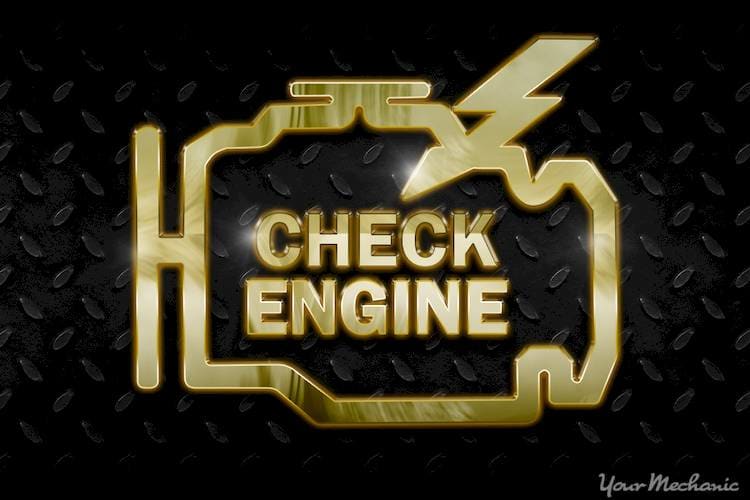P0045 Trouble Code definition
P0045 is the code for Turbo/Super Charger Boost Control Solenoid Circuit/Open
What the P0045 code means
This code has varied definitions as provided by the manufacturer. Generally, this code indicates the ECU (Engine Control Unit) has detected an abnormal reading in the turbocharger or supercharger boost control circuit. This is on circuit "A" and is related to an area of the system circuit, as opposed to a particular malfunction or component.
What causes the P0045 code?
The most common causes of this code include:
- Vacuum leaks in the intake manifold
- A dirty air cleaner
- A waste gate either stuck open or closed
- A defective intercooler
- Loose connection between the exhaust manifold and the turbocharger
- Loose connection between the turbocharger and the intake pipe
- Faulty boost sensor
- Shorted or open wiring in the boost sensor circuit
- Loose, corroded, or disconnected electrical connectors in the boost sensor's 5-volt reference circuit
- Turbo failure, which is usually caused by internal oil leaks and oil supply problems
What are some of the symptoms of P0045 code?
When problems with the turbo or supercharger boost control solenoid circuit occur, you will most commonly have low or no boost that can lead to a loss of power during acceleration. The engine boost will be zero and the engine will have no boost. The Check Engine Light would then come on once the ECU has detected the solenoid circuit open.
How does a mechanic diagnose the P0045 code?
The code is normally preceded by the Check Engine Light coming on the dashboard. The mechanic must use an OBD-II scanner to identify the code, then reset the code and test the vehicle to see if the code returns. If it returns, then the mechanic must inspect for vacuum leaks, loose connections, wiring failures, or turbo charger faults. A boost pressure gauge either on the vehicle or a test gauge can allow the mechanic to visually watch the operation of boost pressure to see if it is normal and operating in the 9-14 PSI range.
Common mistakes when diagnosing the P0045 code
Do not assume any component is bad without fully inspecting the system. Mechanics have reported that failure to flush all debris and obstructions from the turbocharger oiling system can lead to repeated turbo failure. Turbocharger replacement without exhaustive testing of the bypass valve or waste gate function and electrical circuitry is also a cause of frequent misdiagnosis.
How serious is the P0045 code?
This code is very serious and is usually preceded by the Check Engine Light coming on. It should be diagnosed as soon as possible to prevent engine internal damage.
The vehicle will run erratically and cause backfiring, rich or lean fuel consumption, and also result in over or under boost conditions.
Often times, if the Check Engine Light came on immediately at start up, the OBD-II system can be reset and the vehicle will operate normally.
What repairs can fix the P0045 code?
The most common repairs to address the P0045 code are as follows:
Have a certified technician verify the code with a scanner, reset the fault codes, and perform a road test.
If the P0045 code returns, then follow the test procedure below.
Test Procedure:
Carefully inspect the turbo or super charger system for loose connections including hoses and lines being cracked or damaged.
Inspect the wiring on the boost sensor and related wiring for loose connections, damaged wiring or a faulty sensor.
Check boost pressure during operation and driving for a normal range of 9 to 14 PSI pressure and ensure it is not erratic.
Inspect the turbo charger for damaged blades, wobbly shaft rotation, worn bearings, oil leaks into the turbo boost side, and correct control valve or waste gate operation.
Having done many of the tests for this problem, I would first suspect the wiring to the solenoid to be the cause. But the proof is in observing the boost pressure range during operation. Turbocharger problems are rare except on certain models, and are more likely to relate to the control solenoid and the physical operation of the bypass valve or waste gate.
If the actual boost is normal or close to it, then the solenoid is usually the culprit requiring replacement. On some cars, this is simply an electric switch with a boost pressure sensor and it just wears out and needs replacement. Since the nature of turbo/supercharger systems is constantly changing pressure and temperatures, components simply fatigue, which can often lead to the solenoid and the bypass valve failing together.
Many vehicles with mileage over 100,000 have momentary sensor problems that usually occur during start up or prolonged stress situations on the drive train. If the Check Engine Light comes on and the vehicle seems to be operating normally, the OBD-II system can be reset using the scanner and the problem may not reoccur. This is why it is important to verify the fault and reset it before doing any repairs.
Need help with a P0045 code?
YourMechanic offers certified mobile mechanics who will come to your home or office to diagnose and repair your vehicle. Get a quote and book an appointment online or speak to a service advisor at 1-800-701-6230.
Check Engine Light
P0045
trouble codes





